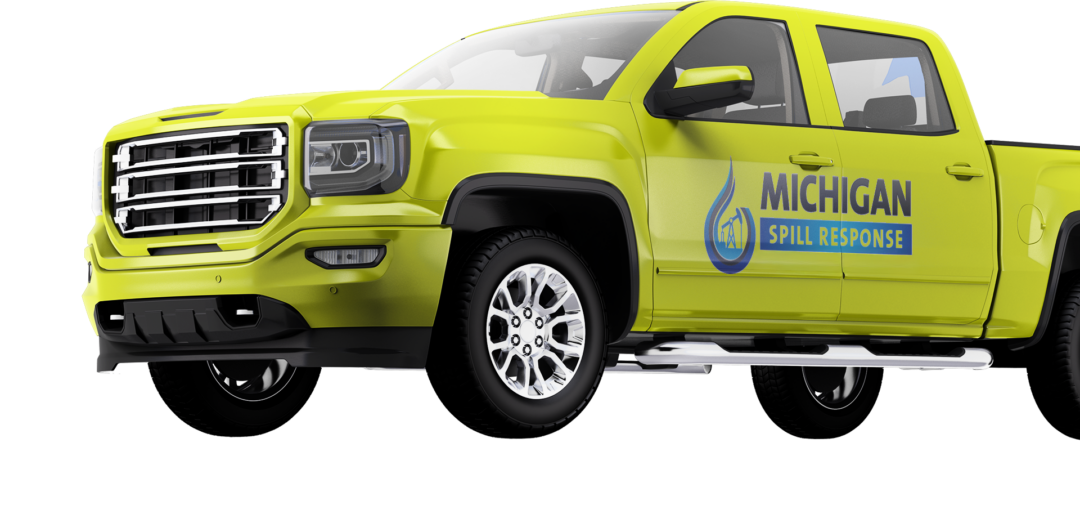Training
1st Annual Hazmat & Responders Training Event
Saturday, January 25th, 2025
8:00am – 1:00pm
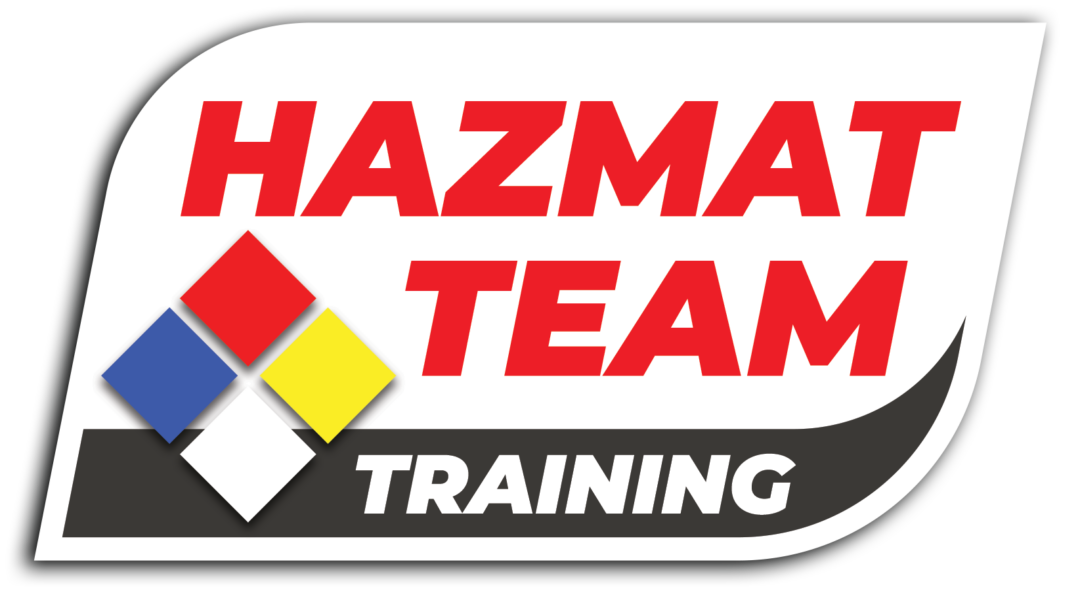
Our first annual Hazmat & Responders training event was a huge success! This event brought together members of our team, the Genesee County Hazmat Team, and other local municipalities and first responders for a day of hazmat spill response and preparedness training.
This training prepared participants for real-world spill response scenarios and covered a broad spectrum of hazardous materials handling, scene assessment, equipment, and containment strategies on both land and in water.
Stay Informed on Michigan Spill Response Training
Sign up for email updates and be the first to know about upcoming hazardous materials training events and opportunities to enhance your response skills!
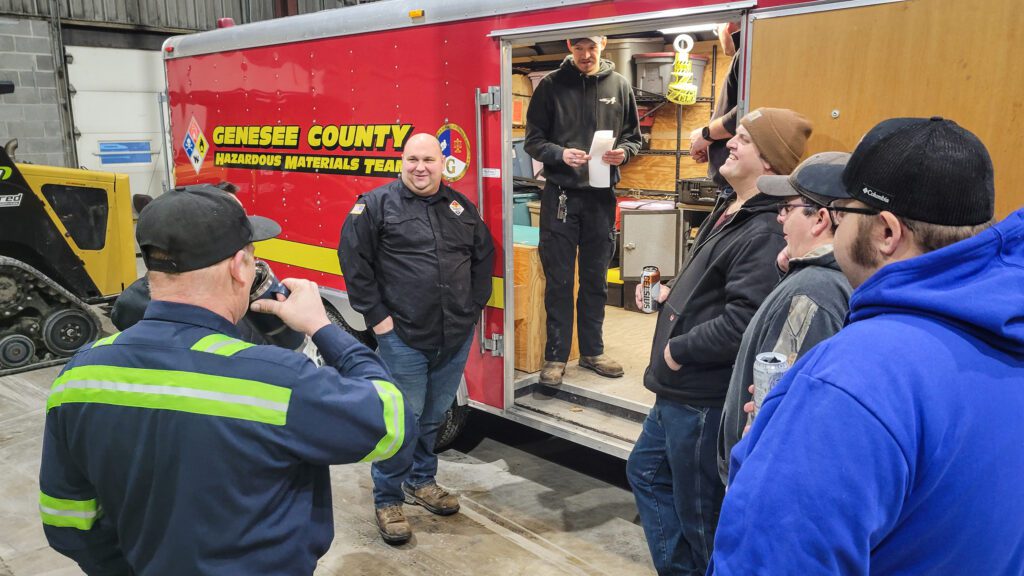
Training Highlights
1. Equipment Capabilities
- Participants familiarized themselves with essential equipment and specialized fleet vehicles including full hazmat response vehicles, trailers, and vac trucks.
- They learned the capabilities of the vehicles and tools available to ensure readiness in the field.
2. Hazard Identification and Scene Assessment
- Attendees honed their ability to identify hazards using all their senses, from recognizing placards and emissions to detecting hazardous smells, tastes, and sensations.
- They also learned when and how to request vital documents, such as Bill of Lading, Manifest, and Safety Data Sheets, to guide their response.
3. Proper Personal Protective Equipment (PPE)
- The training emphasized the importance of always being prepared with the highest-level PPE for safety and taught how to assess and confirm the materials being handled before taking action.
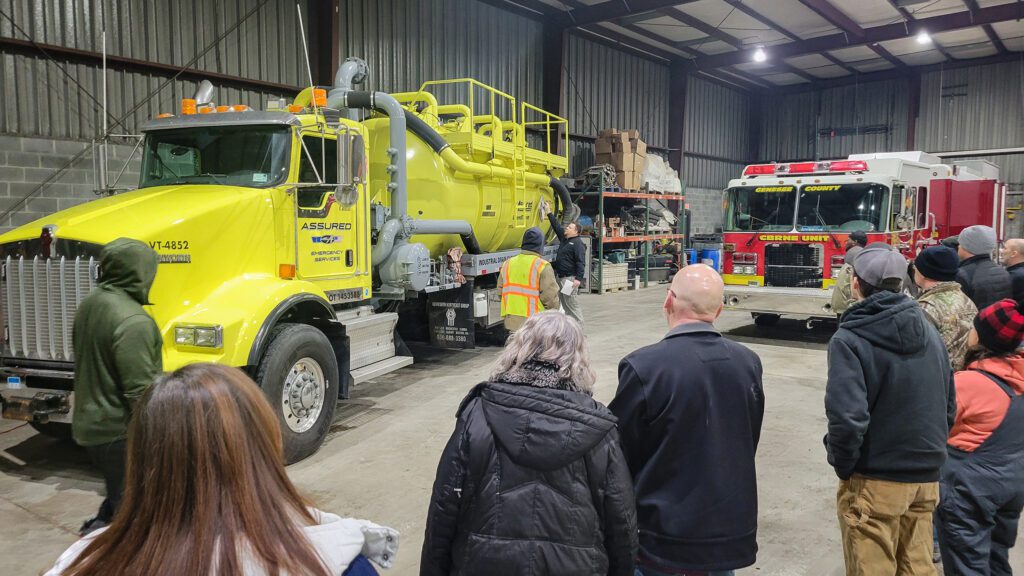
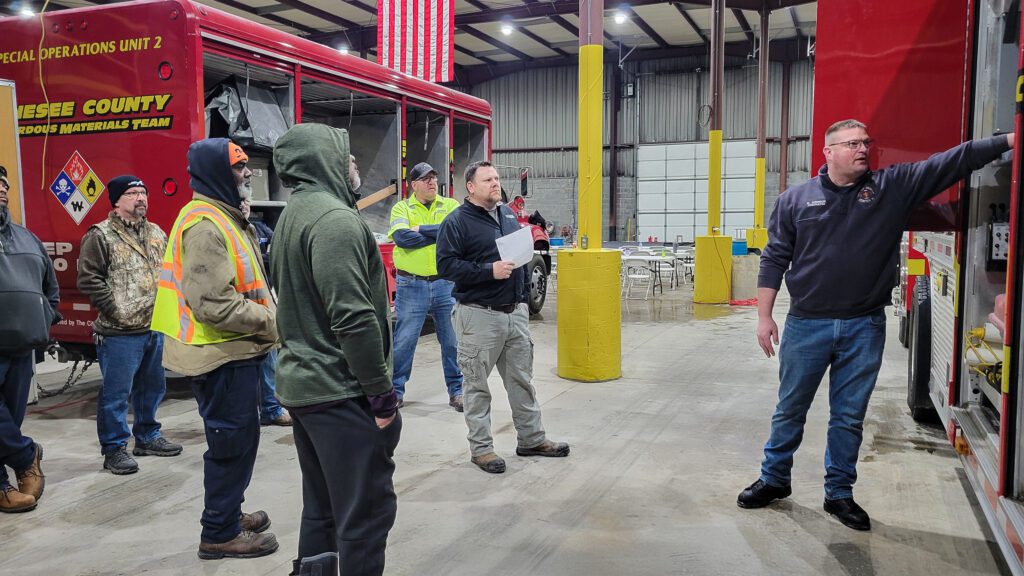
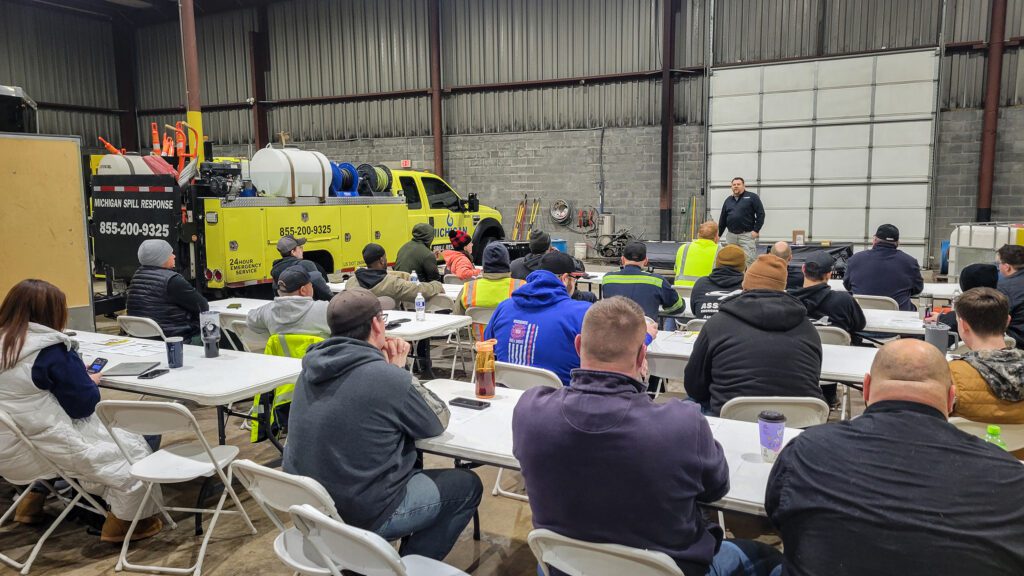
4. Containment Techniques
- Participants learned the key difference and use-cases of various containment measures, including underflow dams, absorbent boom, weir gates, containment pools, and more.
5. Confined Space Safety
- The event covered how to identify confined spaces, understand the risks, and ensure that only trained personnel with confined space certification enter these high-risk areas.
6. Surface Water Spill Management
- Attendees gained practical knowledge on identifying and managing different types of spills on water, including diesel, gasoline, and hydraulic oil.
- They learned how to deploy and manage soft and hard boom effectively, as well as how to deal with fluctuating water levels and extreme weather conditions.
7. Boom Replacement and Recovery
- Participants learned how to maintain and monitor booms, check saturation levels, and replace or remove them based on the situation. Regular monitoring was emphasized as key to efficient spill containment.
This training was a valuable opportunity for anyone involved in hazardous material response, offering hands-on experience and practical knowledge that can be applied immediately in the field.
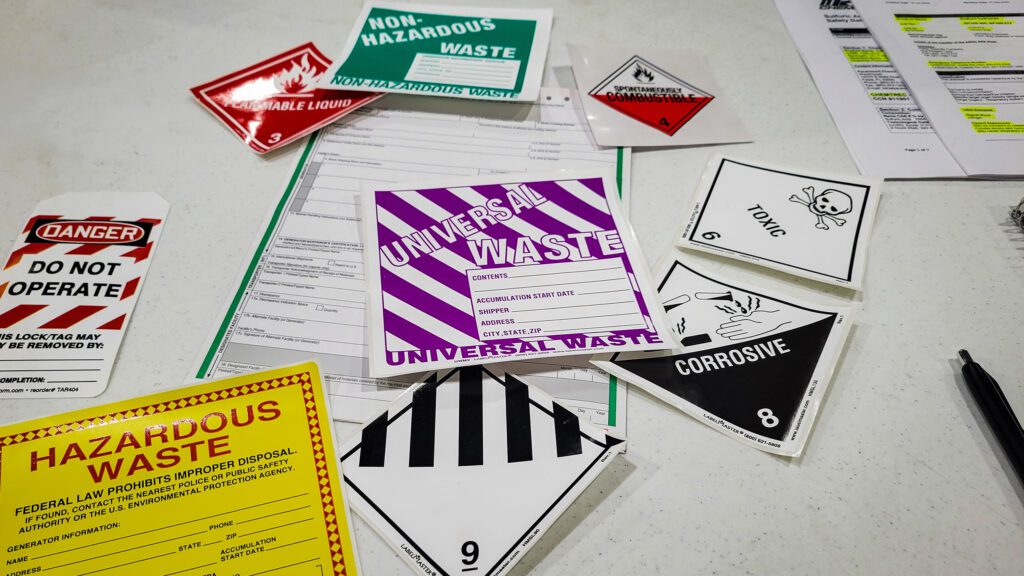

Upcoming Training Events
Stay tuned for details on our next session—dates and location will be announced soon.
Thank you to everyone who participated, and we look forward to seeing you again!


